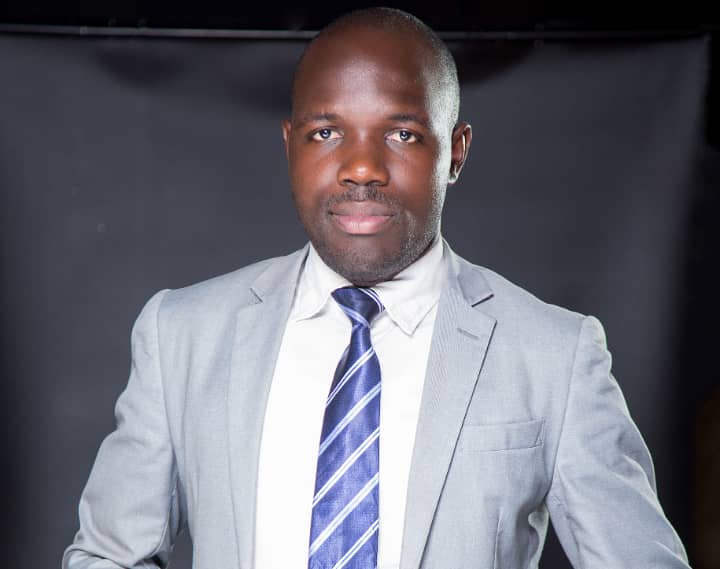
Why the West could be using the Lobito Railway Project to loot Africa
By Kungu Al-mahadi Adam The Lobito corridor project has been touted to Angola, Zambia, and DRC as a game changer for their socio-economic needs.In reality, it pursues interests of the West. The EU and the U.S. are mainly interested in, in providing quicker and more effective routes for valuable and strategic resources from Africa to their markets.It seems the United States of America and the European Union (EU) will not, at least in the near future, relent on scheming to plunder Africa’s natural resources as they continue to front exploitative systems designed to profit from the continent’s resources and keep its people in poverty.One of these plots is the Lobito Corridor Project, which consists of a 1,300 km railway line traversing Angola from the Atlantic Ocean to the country’s borders with the DRC and Zambia.The project, on completion, will mainly be used as a route for transporting critical raw materials (CRMs), strategic minerals and products of the EV battery value chain, from the DRC and Zambia to the European Union and U.S.Indeed, several agreements and MoUs related to Lobito Corridor involving, among others, DRC, Zambia, Angola, EU, U.S. and the African Development Bank has been signed.Like they have always done, neo-colonialists front such projects as though they are for developing African countries, yet in actual sense, they are a cover-up to their exploitative tendencies and deals to steal wealth from Africa.Look, the Lobito corridor project is presented to Angola, Zambia, and DRC as a game changer for their socio-economic needs, and yet, in reality, it pursues interests of the West.All that the EU and the U.S. are interested in, is providing quicker and effective routes for valuable and strategic resources from Africa to their markets.In this way, Americans and Europeans want to keep their already thriving manufacturing industry with a continued supply of raw materials. They also want to keep Africans in abject poverty by way of continued exportation of their raw materials well, knowing that such earns them less.Imagine how much is lost in exporting critical and valuable resources worth billions of dollars in their raw form. If Americans and Europeans had good intentions, their focus should have been on promoting value addition on African products rather than creating easy exit of raw materials.It is explicit that DRC and other mineral-rich African countries can NOT develop from their critical raw materials and strategic minerals when they export it raw. The only way for these countries is to develop a formidable processing industry.In fact, by rooting for projects like the Lobito Corridor, the EU and the U.S want to prevent Africans from developing their industry for refinery of strategic raw materials and high-tech production, which will, in the end, lead to huge financial losses for the continent.In the period of colonial rule, the West plundered Africa’s natural resources, and now, the U.S. and EU have demonstrated that they habour similar intentions towards developing countries and are trying hard to establish the same model of exploitation of the continent’s wealth.Another case in point is the U.S. and EU’s continued facilitation of social and economic instability in the Great Lakes region. Again, the intention is to provide themselves with unfettered access to cheap critical raw materials.Such an approach is still actual for the West, and it is proved by the latest agreement between EU and Rwanda on supplying European countries with critical raw materials, which Rwanda, actually, Rwanda doesn’t have.The memorandum of Understanding MoU), was signed in Brussels on February 19 by Commissioner for International Partnerships, Jutta Urpilainen, and Rwanda’sMinister of Foreign Affairs, Vincent Biruta.The MoU establishes close cooperation between the EU and Rwanda in five areas concerning raw materials that are important for EU’s Action Plan on Critical Raw Materials. It signals bothparties’ intention to strengthen their partnership for closer integration of raw materials valuechains.According to the MoU, Rwanda is a major player on the world’s tantalum extraction. It also produces tin, tungsten, gold, and niobium and has potential for lithium and rare earth elements.However, the Congolese government accused Rwanda of plundering Congo’s mineral resources and the EU of being complicit. DRC says Rwanda should not export wealth that it does not have.Some political commentators allege that Europeans use Rwanda’s President, Paul Kagame, as their proxy for looting resources of neighbouring DR Congo where pro-Rwandan militias, M23 operate.It is alleged that the crisis in Eastern DR Congo is maintained with unofficial consent of Brussels and Washington, who virtually recognized connections between Kigali and M23 but voiced only humble criticism and concerns towards Kagame without any real action.The commentators say that President Kagame works for the interests of the U.S. and E.U, and that is why he is reportedly sidelined from Western sanctions and accusations of human rights violations.Such an approach by Americans and Europeans demonstrates double standards of Western foreign policy, using this rhetoric as a tool for achievement of their goals. In this way, the West still has neo-colonial ambitions and aims at establishing total control on the resource base of developing countries.The writer is a Ugandan journalist with a passion for current African affairs.adamkungu7@gmail.comhttps://www.ugbulletin.co.ug/why-the-west-could-be-using-the-lobito-railway-project-to-loot-africa/
News
Ugandan Citizen Abducted, Held in Secret Detention for Three Months, Sparks Outrage and Calls for Justice

A disturbing new case of unlawful detention has surfaced, highlighting the ongoing human rights crisis in Uganda. A Ugandan citizen was reportedly abducted and held in a secret facility, known as a “safe house,” for three months, only to be released without charge or explanation. This incident, reported by NTV Uganda, has sparked widespread condemnation and renewed calls for accountability regarding human rights abuses in the country.
While the details surrounding the abduction remain unclear, reports indicate that the individual was taken without due process and held incommunicado—an action that has long been condemned by human rights organizations. The victim’s release, with no charges filed and no clear justification, has angered activists and citizens, who view this as yet another case of egregious abuse of power by the state.
“This is a recurring pattern,” said one human rights activist. “Abductions, secret detentions, and unexplained releases have become all too common in Uganda. These acts violate fundamental human rights and erode public trust in the justice system.”
The use of “safe houses,” unregistered detention facilities reportedly operated by security forces, has been a focal point in numerous allegations of torture and illegal imprisonment. Despite repeated calls from both local and international organizations for their closure and accountability for those involved, little action has been taken to address these violations.
This case underscores the urgent need for reform within Uganda’s security apparatus and greater accountability for human rights abuses. Observers hope that drawing attention to these injustices will spur concrete action to bring those responsible to justice and ensure the protection of basic human rights.
As frustration mounts, calls for both domestic and international pressure to hold the government accountable for such crimes grow louder. “One day, there must be accountability for all these crimes against our people,” stated one social media user, reflecting the sentiments of many Ugandans.
News
NUP Gathering Disrupted: Kyagulanyi Alleges Security Force Harassment and Arrests

National Unity Platform (NUP) President Robert Kyagulanyi has accused Ugandan security forces of using excessive force to disrupt a planned NUP gathering. The allegations were detailed in a statement shared on Twitter, following an event held to honor children of NUP supporters who were killed, disappeared, or detained for their political beliefs.
According to Kyagulanyi, security personnel, under the command of an officer identified as Asiimwe, carried out a preemptive operation early in the morning upon learning of the NUP’s plans. The forces allegedly stormed the premises, arrested workers, and deployed tear gas to disperse those present.
“The criminals under the command of one Asiimwe deployed early morning, arrested our workers, and threw tear gas into our premises. They’ve cordoned off the premises and blocked all people from accessing the place,” Kyagulanyi wrote.
Among those reportedly arrested were Saava Peter, Mudenya Samson, and Turyasingura Samson. Kyagulanyi claimed the detained workers were subjected to beatings and interrogated about their political affiliations, with security operatives labeling them as terrorists.
“These JATT operatives asked the workers who they support politically, branding them terrorists and criminals—their only crime being that they work with us. You can imagine the indignity!” Kyagulanyi lamented.
This incident adds to the growing tension in Uganda’s political climate, where opposition parties frequently accuse the government of stifling dissent. Despite the challenges, Kyagulanyi ended his statement with a message of defiance and optimism, proclaiming, “UGANDA WILL BE FREE.”
NUP Gathering Disrupted: Kyagulanyi Alleges Security Force Harassment and Arrests
News
Sudan Demands Apology from Uganda Over Army Chief Muhoozi Kainerugaba’s Threat to Invade Khartoum

Sudan has demanded an official apology from Uganda over “offensive and dangerous” comments made by the chief of Uganda army staff, who threated to invade Khartoum, the Sudan Tribune has reported.
General Muhoozi Kainerugaba, son of Ugandan President Yoweri Museveni and CDF of the Ugandan army, posted two comments on the X platform on Tuesday in which he threatened “to capture Khartoum” with the support of the US President elect Donald Trump after he takes office. The posts were deleted later.
“The government of Sudan demands and official apology from the Ugandan government for the offensive and dangerous comments of the army commander,” Sudan’s foreign ministry said in a statement that the Sudan Tribune said it has seen.
Sudan Demands Apology from Uganda Over Army Chief Muhoozi Kainerugaba’s Threat to Invade Khartoum







